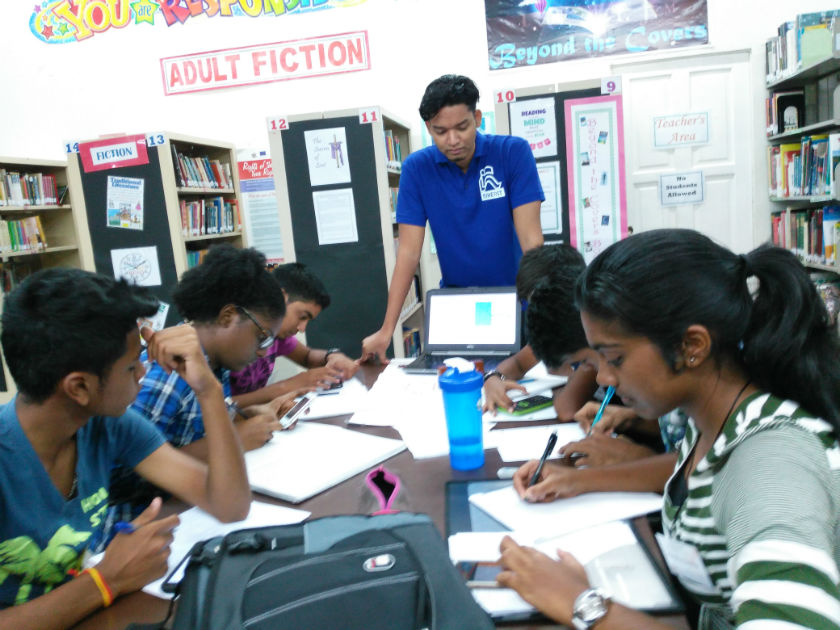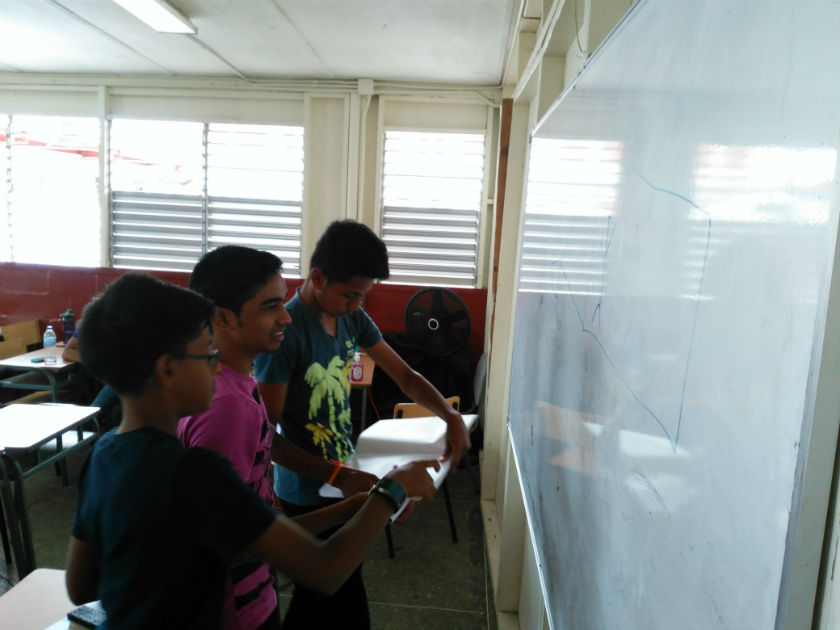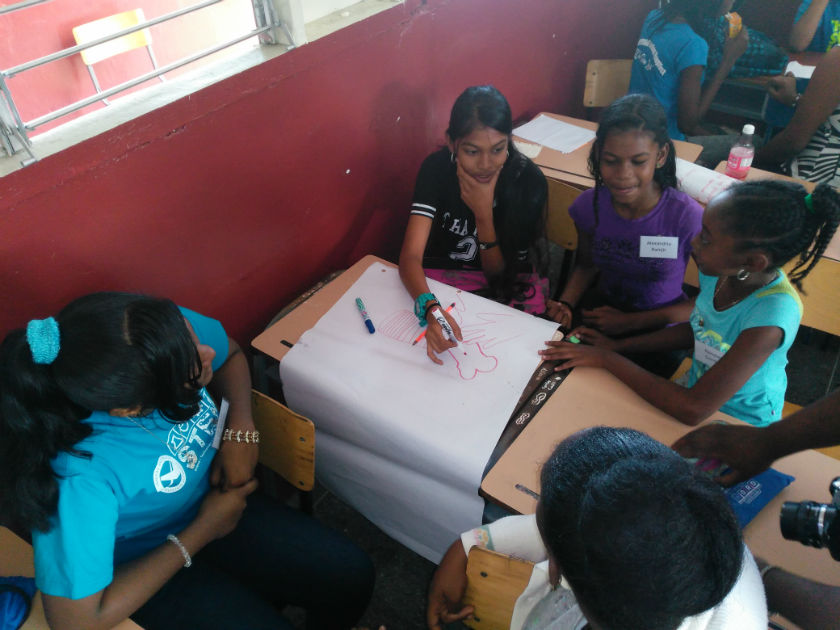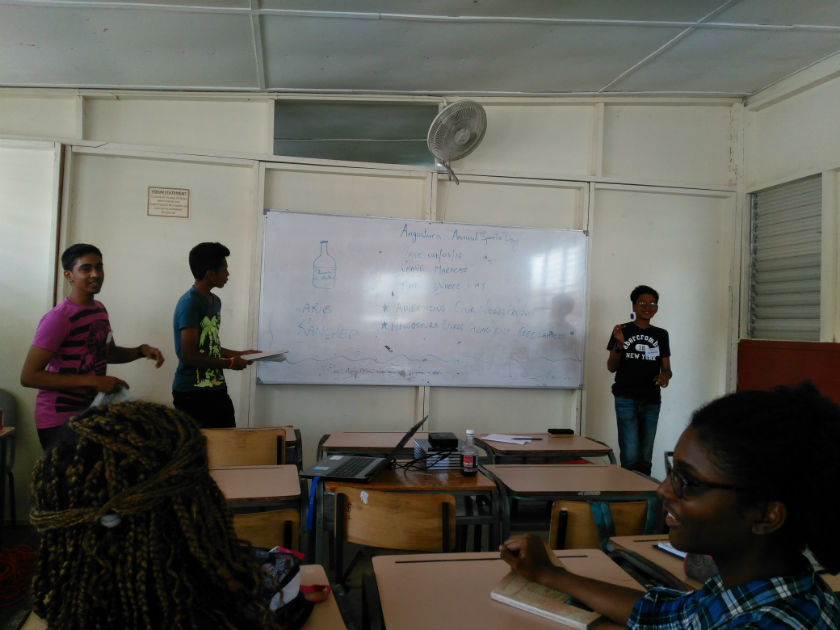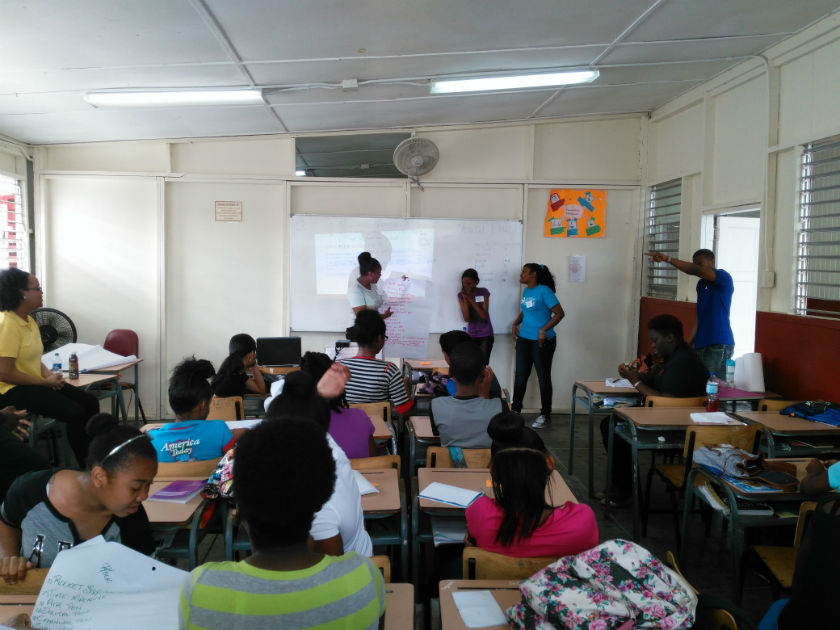Background
International trends in the reform of science education tie learning to motivation. Stimulating students’ interests, engaging them in problem solving, and demonstrating relevance are the recommended strategies for creating stronger attractions to Science Technology Engineering and Mathematics (STEM). This design-based learning project utilized each of these approaches. It was designed to help counsellors to more effectively use the natural inclinations of young people to design, make and learn how things work in order to actively engage them in STEM learning. It was also geared towards promoting the use of design-based learning approaches to STEM instruction that actively encourage students to work out solutions to design problems that impact their local communities, enabling them to find relevance and pursue their own interests in STEM.
The programme was inspired by the NIHERST Community Centred Design and Innovation (COMDESI) project, and the collaborative IEEE training workshop on Arduino. Based on easy-to-use hardware and software, Arduino is affordable, flexible and designed for anyone involved in interactive projects including engineers, teachers, students, artists, designers and “techies”. Partnering with our social investment partner Shell Trinidad and Tobago Limited and their project manager Sacoda Serv Limited, this project set out to engage 250 students in creative thinking, problem solving, innovation and invention, prototyping, civic engagement and social responsibility. Students and counsellors alike were drawn together by a shared delight in the excitement of tinkering and creating, utilizing technology through experimentation, exploration, problem solving, and collaboration. These are the very ingredients that make for inspired and passionate STEM learners and practitioners. YouthBuild provided opportunities for experiential and action-learning to address community needs while fostering social networks that allow youth to develop leadership skills and validate their vital contribution to community service through their connection with others. Students were able to engage with members of various communities, identifying problems and potential solutions to meet real needs in their local communities.
Youthbuild culminated at the Shell STEM Fair which was held on the 20th January, 2017 at the National Energy Skills Center (NESC). A total of nineteen prototypes were presented by the participating teams to judges, their peers and members of the public. Two competitions were held on that day, the Richard Braithwaite STEM Project Communication Award and the STEM fair overall winner.




